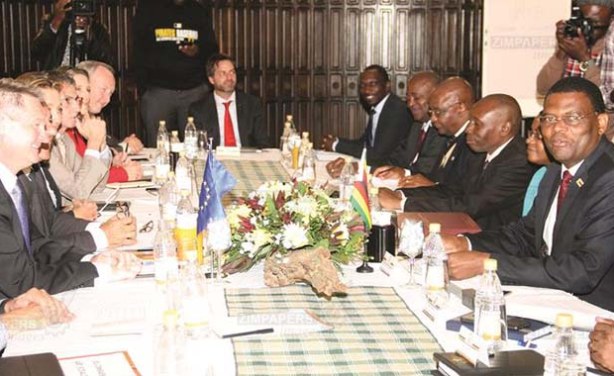The Fourth Session of the Article 8 Dialogue Between the Government of Zimbabwe and the European Union (EU) is taking place today.
Zimbabwe and the European Union launched a formal dialogue process based on Article 8 of the Cotonou Partnership Agreement which governs relations between member states of the African-Carribean-Pacific regions and the European bloc.
Speaking after the launch sometime last year, EU Ambassador to Zimbabwe Timo Olkkonen expressed satisfaction over the Zimbabwe government’s “seriousness” in its reform agenda but said the bloc was worried by continued State victimisation of civil society activists.
The previous meeting allowed for the continuation of discussions on topics that are of common interest and are priorities in EU-Zimbabwe relations: human rights, democratisation, rule of law and good governance; economic developments and reforms, the investment climate and implementation of our free trade agreement, the Economic Partnership Agreement; development cooperation, humanitarian assistance and global and regional partnerships.
The discussion also included exchanges on Zimbabwe’s COVID-19 response as well as the EU’s support and assistance.
The EU and its Member States expressed concern over a curtailed democratic space in Zimbabwe over the last year, and reports of continued violations of human rights such as reported cases of enforced disappearances and lengthy unjustified detentions, arrests of journalists and other limitations to the freedom of expression and the media.
The EU urged the Government to conduct impartial investigations of human rights violations and bring perpetrators to justice.
The EU acknowledged Government’s efforts to stabilise the economy and highlighted that economic reforms and the fight against corruption are paramount for Zimbabwe, in particular to mitigate the humanitarian crisis, and improve the socio-economic situation.
The European Union reaffirmed that it stands ready to continue to support the Zimbabwean people in the current challenges, and that entering an economically, socially and environmentally sustainable growth path requires structural reforms by Government.













